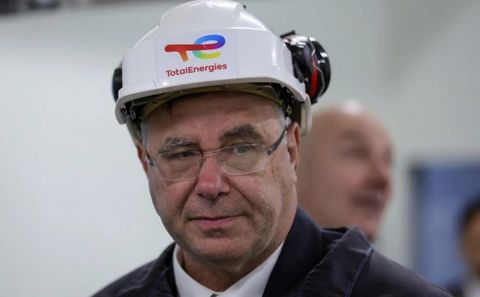Communication - Presse
TotalEnergies to restart Cabo Delgado LNG project later this year

French oil company TotalEnergies plans to restart construction work on a liquefied natural gas plant in northern Mozambique later this year, the company’s chairman announced at a conference with analysts, considering that “the situation has clearly improved”.
According to the Bloomberg financial news agency, Patrick Pouyanne told analysts that he thought the insecurity situation that led to the suspension of work in 2021 had “clearly improved”, allowing work to resume in Cabo Delgado province this year.
With the new timetable now on the table, the start of gas production for the $20 billion project could take place in 2028 and gives new impetus to the increase in interest payments on the $900 billion debt, whose interest will rise from 5% to 9% from March next year.
“The resumption of liquefied natural gas (LNG) projects is crucial for the bonds,” commented the head of investments at Capitulum Asset Management, Lutz Roehmeyer, a Berlin-based fund manager.
“Without the resumption of construction, a new debt restructuring can only be avoided if the capital markets open up to Africa again,” added the investment manager.
The news of the resumption of construction comes the week after financial information agency Moody’s downgraded the outlook for the economy from positive to stable, keeping the rating eight notches below investment grade.
Even with a financial support programme from the International Monetary Fund (IMF), Mozambique’s finances are still under pressure, with delays in the payment of domestic debt and difficulties in paying civil servants.
The so-called ‘tuna bonds’, originally issued by Ematum, were converted into public debt in 2019 in the wake of the hidden debts scandal when it was discovered that the loans were endorsed by the state but were not disclosed to any public or international entity.
Following the first report on the subject, published by the Wall Street Journal in April 2016, the country sank into an economic and financial crisis, missing debt payments, and the financial rating agencies downgraded the rating to ‘default’, at the same time as international donors cut direct funding to the Budget, a practice that Portugal, for example, continues to this day.
The debt restructuring in 2019 is directly linked to natural gas production, as it postponed the increase in interest for five years until the commercialisation of gas began, which was one of the main arguments to convince investors to accept the restructuring.
Mozambique has three development projects approved to exploit the natural gas reserves in the Rovuma basin, classified among the largest in the world, off the coast of Cabo Delgado.
Two of these projects are larger and involve channelling the gas from the seabed to land, cooling it in a plant to export it by sea in a liquid state.
One is led by TotalEnergies (Area 1 consortium) and work progressed until it was suspended indefinitely after an armed attack on Palma in March 2021, when the French energy company declared that it would only resume work when the area was safe.
The other is the still unannounced investment led by ExxonMobil and Eni (Area 4 consortium).
A third completed, smaller project also belongs to the Area 4 consortium and consists of a floating platform to capture and process gas for export directly at sea, which started up in November 2022.
The floating platform is expected to produce 3.4 mtpa (million tonnes per year) of liquefied natural gas, Area 1 is aiming for 13.12 mtpa and the onshore plan for Area 4 envisages 15 mtpa.
Cabo Delgado province has been facing an armed insurgency for five years, with some attacks claimed by the extremist group Islamic State.

